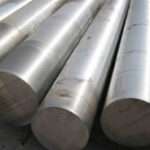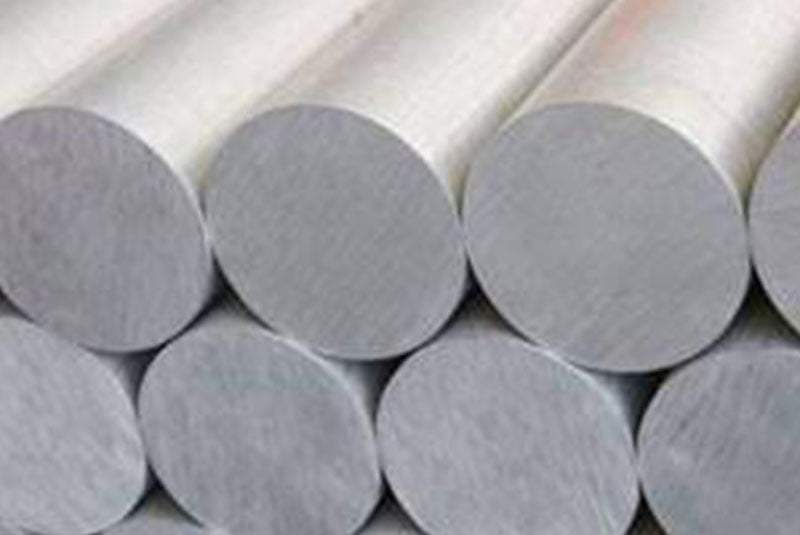Introduction

In the realm of industrial applications, the choice of materials plays a crucial role in determining the efficiency, durability, and cost-effectiveness of various components and structures. Among the plethora of materials available, 1045 carbon steel stands out as a versatile and reliable option. In this blog post, we will delve into the advantages offered by 1045 carbon steel and why it is favored in diverse industrial settings.
Understanding 1045 Carbon Steel
Before delving into its advantages, let’s first understand what 1045 steel is. 1045 steel is a medium carbon steel with approximately 0.45% carbon content. It is known for its excellent strength, toughness, and wear resistance, making it suitable for a wide range of industrial applications.
Advantages of 1045 Carbon Steel
- High Strength and Durability: One of the primary advantages of 1045 steel is its high strength. With a tensile strength of 570-700 MPa, it offers exceptional durability, making it ideal for heavy-duty applications such as shafts, axles, gears, and machinery components.
- Excellent Machinability: 1045 steel exhibits excellent machinability, allowing for easy shaping, forming, and machining processes such as turning, milling, drilling, and grinding. This property significantly reduces manufacturing time and costs.
- Good Weldability: Unlike some high-carbon steels, 1045 steel has good weldability when proper welding procedures are followed. This enables efficient fabrication of complex structures and assemblies, enhancing versatility in industrial applications.
- Cost-Effective: Despite its superior mechanical properties, 1045 steel is relatively affordable compared to other alloy steels. Its cost-effectiveness makes it a preferred choice for various industrial components, contributing to overall cost savings in manufacturing processes.
- Versatility: 1045 steel finds application across diverse industries, including automotive, construction, agriculture, machinery, and more. Its versatility stems from its combination of strength, toughness, machinability, and cost-effectiveness, making it suitable for a wide range of applications.
Applications of 1045 Carbon Steel
The versatility and robustness of 1045 steel make it suitable for a wide array of industrial applications. Some common applications include:
- Shafts and Axles: 1045 steel’s high strength and toughness make it ideal for shafts and axles in automotive, machinery, and construction equipment.
- Gears and Sprockets: Its wear resistance and machinability make it well-suited for gears, sprockets, and other power transmission components.
- Tooling and Dies: Due to its excellent machinability and wear resistance, 1045 carbon steel is used for tooling, dies, and molds in manufacturing processes.
- Structural Components: In construction and infrastructure projects, 1045 steel is utilized in structural components such as beams, columns, and frames.
- Machine Components: Various machine components such as hydraulic cylinders, crankshafts, and connecting rods benefit from the properties of 1045 steel.
Comparison of Mechanical Properties

| Property | 1045 Carbon Steel | Other Steels |
|---|---|---|
| Tensile Strength | 570-700 MPa | Varies |
| Yield Strength | 310-580 MPa | Varies |
| Hardness (Brinell) | 163 | Varies |
| Machinability | Excellent | Varies |
| Weldability | Good | Varies |
Conclusion
1045 carbon steel emerges as a standout choice for industrial applications due to its exceptional combination of strength, durability, machinability, and cost-effectiveness. Its versatility makes it indispensable across diverse industries, contributing to enhanced performance, efficiency, and cost savings. Whether in automotive, construction, machinery, or other sectors, 1045 steel continues to prove its mettle as a reliable and efficient material.
FAQ
Q:Is 1045 carbon steel suitable for outdoor applications?
A:Yes, 1045 carbon steel is suitable for outdoor applications, provided proper coatings or treatments are applied to prevent corrosion.
Q:Can 1045 carbon steel be heat treated for further enhancement of its properties?
A:Yes, 1045 carbon steel can undergo heat treatment processes such as annealing, quenching, and tempering to achieve desired mechanical properties.
Q:What are the limitations of using 1045 carbon steel?
A:While 1045 carbon steel offers numerous advantages, it may not be suitable for applications requiring extreme hardness or corrosion resistance, where specialized alloys would be more appropriate. Additionally, careful consideration must be given to welding procedures to avoid issues such as cracking.
In conclusion, 1045 carbon steel is a versatile, cost-effective, and reliable material that finds widespread use in various industrial applications, contributing to the efficiency and performance of diverse systems and structures.
